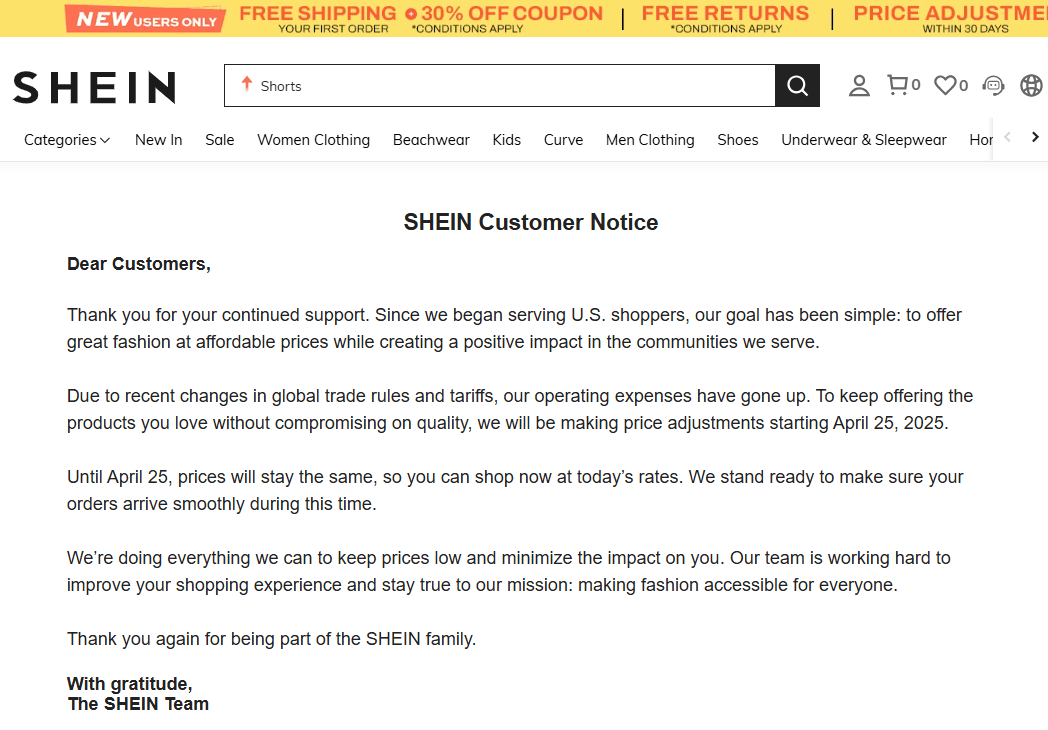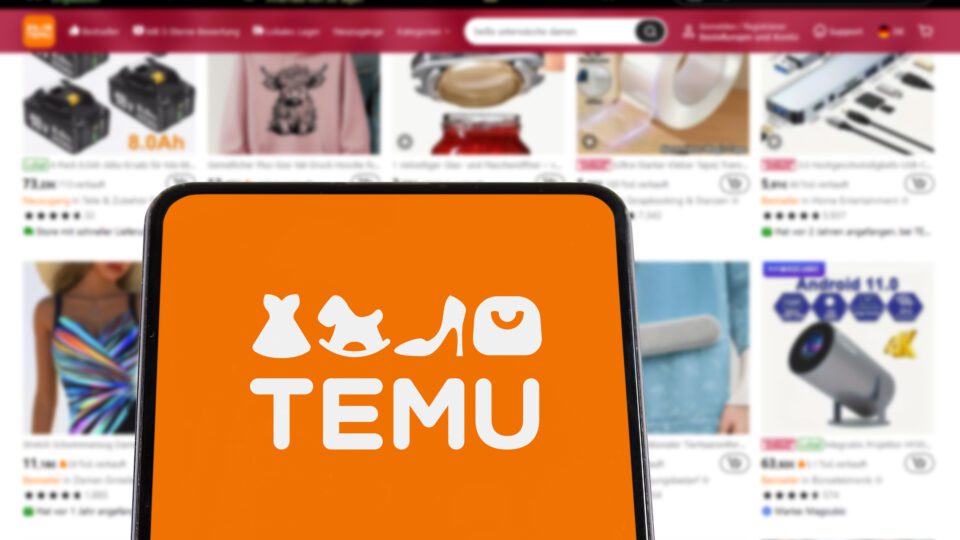Chinese-based discount retailers Shein and Temu are being forced to take drastic measures as they are doubly impacted by President Trump’s ongoing tariff tit-for-tat with China. Not only will the goods they sell potentially be subject to as much as a 145% tariff unless an alternate deal is reached between the two countries, but the de minimis loophole that had exempted most of their shipments from tariffs altogether has been removed.
While the exact amount of tariffs that will be imposed on Chinese goods remains unclear — Trump indicated just yesterday that he was likely to reduce that amount, admitting it’s “very high” — the chance of that number going down to zero is nil, according to the President himself.
And unlike with his “reciprocal tariffs,” Trump has shown no sign of wavering on the elimination of the de minimis loophole for Chinese imports, which had allowed shipments worth less than $800 to enter the U.S. tariff-free. That rule is set to be eliminated on May 2 for all goods from China and Hong Kong. After that date, all items imported using methods outside of the international postal network will be subject to applicable tariffs regardless of shipment value, and items sent through the postal network valued at $800 or less will pay a duty rate of 30% of the total value or $25 per item through June 1 and $50 per item thereafter — a steep fee on products often priced well below $20.
Temu, Shein Announce Price Increases in the U.S.

In response, both companies have announced impending price increases to their customers. “Due to recent changes in global trade rules and tariffs, our operating expenses have gone up,” said Shein in a statement on its website. “To keep offering the products you love without compromising on quality, we will be making price adjustments starting April 25, 2025.”
Advertisement
A statement from Temu, emailed to customers, used the exact same wording. No details were offered by either company on the size or scale of the price increases, but this will almost certainly be a blow to both businesses in the U.S., given that their primary draw has been shockingly low prices.
Chinese Apps Also Pull Back on Return-Free Refunds, U.S. Ad Spend
Furthermore, Chinese authorities have reportedly asked ecommerce operators to stop insisting that merchants on their platforms issue refunds without requesting that the goods are returned, a common practice for low-cost items that would likely cost more to ship back than they can be resold for. According to people familiar with the matter who spoke to Reuters, the aim of the directive is to alleviate financial pressure on Chinese manufacturers in advance of a potential slowdown in business.
Despite the fact neither the tariffs nor the price increases are yet taking effect, Chinese ecommerce apps are already seeing a slowdown in their U.S. business. According to data from SimilarWeb, both Temu and Shein already are experiencing marked declines in app downloads and daily active users (DAU). Over the last seven days, Temu downloads have dropped 22.9% week-over-week, and DAU is down 22% from the previous week. Downloads of the Shein app actually increased 18.9% in the last week, but DAU was down 14.3%.
These declines could be related to the fact that both companies appear to be slashing their ad spend in the U.S. amid the ongoing turmoil. Based on data analysis from marketing performance agency Tinuiti, Temu had held a notable 19% share of U.S. Google Shopping ad impressions through March 31, but by April 12 its presence had dropped to 0%, suggesting a dramatic pullback in investments in Google Shopping ads. Shein’s share also dropped by nearly half over two weeks, from 20% on March 31 to just 10% by April 15, signaling a similar potential change in Shein’s U.S. advertising strategy.
Google Shopping ad impression share data represents how often a company’s ads appear in search results, offering a strong proxy for how much a company is investing in the space, which, for digital retailers, is one of the primary discovery points to engage shoppers online. “Shein still has some activity in Google Shopping ad auctions, but it appears to be ramping down similar to how Temu did,” noted Mark Ballard, Tinuiti’s Research Director, in comments shared with Retail TouchPoints.















